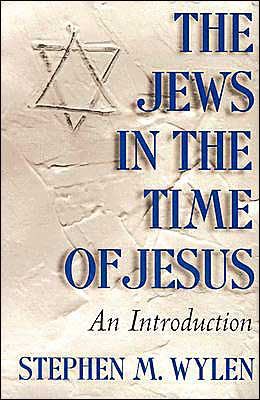

 |

|

The average rating for The Jews in the Time of Jesus: An Introduction based on 2 reviews is 3 stars.
Review # 1 was written on 2015-05-26 00:00:00 Bengt Forsberg Bengt ForsbergIf I'd been able to read the Intro before buying this book, I never would have bought it. I believe that the Bible is accurate, but I wanted some further background on Bible Times. This author believes that we have to sort through the myths and legends in the Bible to find what truly happened. He claims that early Christians didn't care about Jesus' teachings, only the Salvation message. Yet the Gospels record many of Jesus' "how to live in the here and now" teachings and not just his death and resurrection. This shows that early Christians DID care about this information. If you prefer a "pick and choose what you like" approach, then you might like his running commentary on what he thinks is accurate and what isn't. For example: We have the details of how Moses and the nation of Israel received the Law in Exodus. The contents of the first five books of the Bible are attributed to Moses throughout the Bible. However, on page 22, this author waves his hand and dismisses this with, "Jewish tradition--the pious Jewish assumption shared also by Christians--says that the Torah existed since the time of Moses, who brought it down from Mount Sinai, when God had dictated these five books. Historians doubt this." (He thinks it was written much later.) He throws around the phrase "many scholars" and "historians" on a frequent basis. Well, I know "many scholars and historians" that don't agree with his claimed timing of the writing of the Torah. On page 58, he stated "Most historians perceive the Oral Torah as a post-Maccabean innovation, a flexible response to difficult and changing times. The traditions of the Pharisees were an attempt to update the Torah for the "modern" world of their time." He believes that the Pharisees were trying to boost their authority by claiming the traditions went way back. He apparently thinks no one noticed that they'd never heard these "traditions" before or, at least, that no one was able to leave a record that the Oral Torah/traditions of the Pharisees were a "modern" fake. Any evidence against his position will be dismissed as fakes or lies. But unless he dismisses any "pious Jew or Christian" as worthy of being called a historian, his claim of "most historians" backing his position is again not accurate. Anyway, I tried to read this for any factual information despite his obvious bias. Unfortunately, his tendency to re-write "the facts" to suit his viewpoint made me doubt the accuracy of anything he stated. I quit around page 60. I don't recommend this book as the information in it is too strongly affected by his bias. It's certainly not as generally accepted as he'd like you to think. |
Review # 2 was written on 2011-04-08 00:00:00 Tim Gordon Tim GordonThis book is now fifteen years old, but it remains one of my favorites, and I wanted to share it. Stephen Wylen is a rabbi at Temple Beth Tikvah, Wayne, NJ, and I so enjoyed his book that I asked him to contribute a back-cover blurb for my own book. He did even more: he contributed a full review: I'm indebted to him, but luckily, his is an easy book to recommend. Jesus was a Palestinian Jew, and this book does a great job of describing the world Jesus lived in. His world can hardly be understood without some background of Jewish history, both political and religious. The two are interrelated: As the Jews were surviving the period of the Maccabees and Hellenistic integration, they were also seeing the age of prophecy transition into Messianism and Apocalypticism. Wylen spends a great deal of time discussing first-century Judaism: the Synagogue, Sabbath observance, ritual purity, and so on. Jewish understanding of God, Satan, Logos, and their practice of prayer and worship differed from neighboring nations, but did not escape subtle influences. Judaism itself was also fragmented, between Sadducees, Essenes, Zealots and Pharisees. Wylen also discusses the trial of Jesus. From what the Mishnah tells us about Jewish law there are some problems with the trial story as it stands. For example, the gospels say that the Sanhedrin found Jesus guilty of blasphemy, yet none of Jesus' words or deeds are blasphemous according to Jewish law. Nor could Jesus have been tried on a capital offense in the manner told in the gospel. According to the Mishnah there were many judicial rules designed to protect defendants accused of a capital crime. The trial had to be held before a full court. The sentencing and hearing had to occur during daylight hours. They could not convict on the day of the trial, as described. For these reasons and more, Wylen concludes Jesus must have been tried by a kangaroo court called together by the high priest Caiaphas, acting on orders from the Romans. Pilate then convicted Jesus of being a revolutionary and sentenced him to crucifixion, just as he slaughtered numerous other innocent Jews. Wylen delves into why Jesus was killed, whether Pilate was guilty or innocent, how the crowd felt about Jesus, and how much of the passion story is historically true. An excellent and informative book, written in an easy-to-understand style. |
CAN'T FIND WHAT YOU'RE LOOKING FOR? CLICK HERE!!!